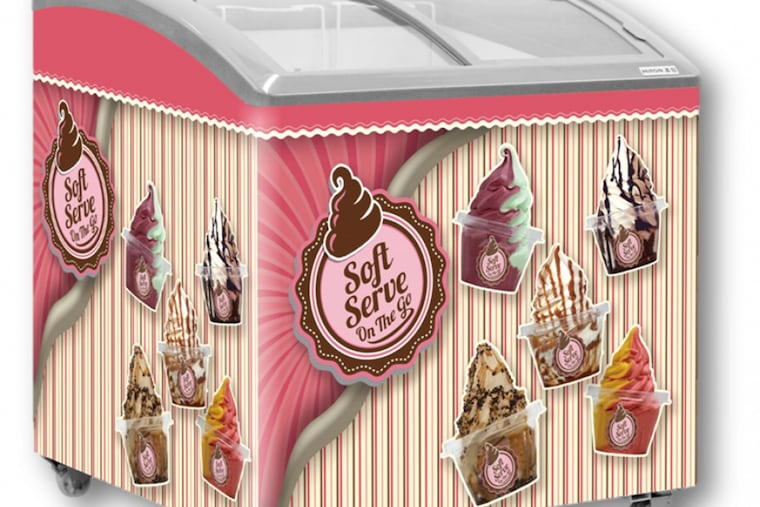A listeria outbreak has been tied to soft serve ice cream cups sold in Pa., N.J., and Del.
Soft Serve On The Go ice cream cups recalled after they were linked to listeria cases among two people, including one in Pennsylvania.

The Food and Drug Administration on Thursday announced a recall of Soft Serve on the Go ice cream cups after two people, one in Pennsylvania, were infected with listeria.
Listeria is a bacterium that is usually spread through contaminated food. It can grow in colder temperatures than some other bacteria, meaning that it can be found in refrigerated, ready-to-eat foods, according to the FDA. It can also be found on produce that grew in soil where listeria was present.
Real Kosher Ice Cream, the Brooklyn-based company that makes Soft Serve on the Go, has voluntarily recalled all flavors of its 8-ounce cups, the FDA said. The company has also temporarily stopped making the products.
The ice cream cups were sold in California, Colorado, Connecticut, Washington, D.C., Delaware, Florida, Illinois, Massachusetts, Maryland, Michigan, Minnesota, North Carolina, New Hampshire, New Jersey, New York, Ohio, Oregon, Pennsylvania, Virginia, and West Virginia. They were also sold internationally in Belgium, Brazil, Canada, Mexico, and the United Kingdom.
People who already purchased the cups should throw them away or return them to the store where they purchased them for a full refund, according to the FDA. People should also clean and sanitize any surfaces that came into contact with the cups to prevent bacteria from spreading to other foods.
The two people sickened with listeriosis, the disease caused by listeria, both said they had eaten vanilla-chocolate Soft Serve on the Go before they became ill. In Pennsylvania, the state Department of Agriculture took an unopened soft serve cup from a patient’s house that was later found to be positive for listeria.
The FDA said it was still awaiting tests to determine whether the strain of listeria found in the cup is also causing the patients’ illnesses.
A person with listeriosis might not experience symptoms for days or weeks, the FDA said. They include fever, chills, muscular aches, diarrhea or an upset stomach, headaches, a stiff neck, confusion, or a loss of balance. Elderly people and those with weakened immune systems or chronic diseases are at greater risk for serious disease or death.
The infection is particularly dangerous for pregnant people and their newborn babies; most pregnant people with listeriosis won’t feel sick but can pass the infection to their babies. In the first trimester, the infection can cause miscarriage. By the third trimester, the infection can lead to premature labor, low birth weight, or the death of the infant.
Fetuses infected with listeriosis are at risk for health problems after birth including intellectual disability, paralysis, seizures, blindness, and brain, heart or kidney problems. In newborns, the bacteria can cause blood infection and meningitis, the FDA says.